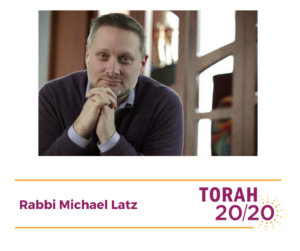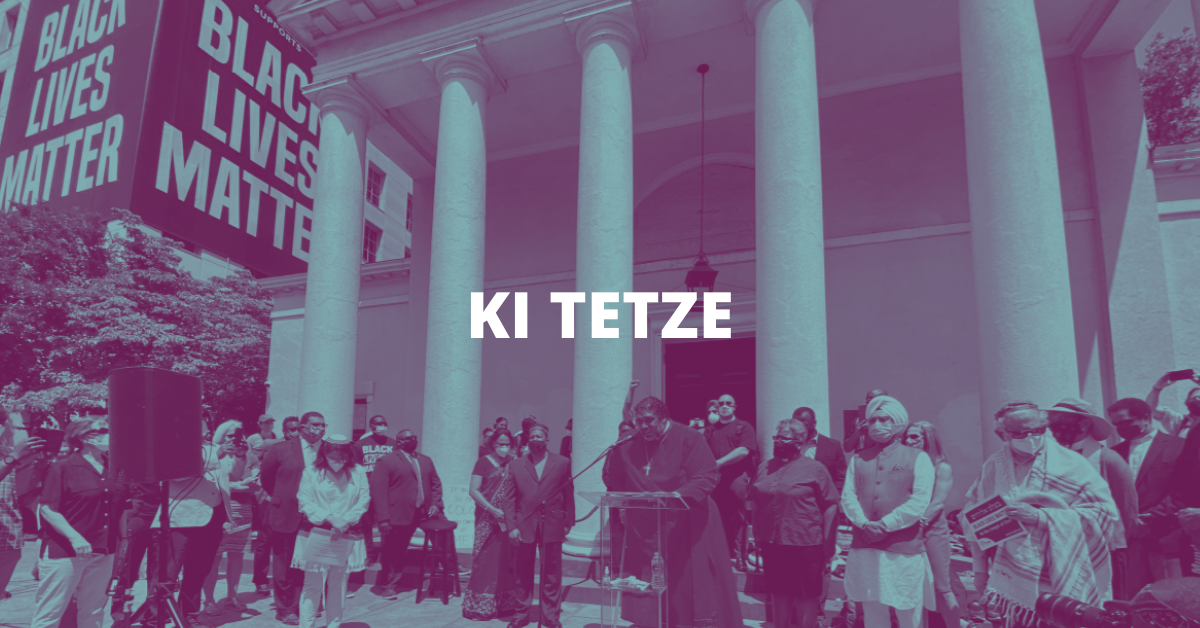I live in Minneapolis. One mile from the intersection of 38th and Chicago Avenue, where George Floyd (z”l) was murdered by four police officers on May 25 of this year. The officers literally choked the life out of Mr. Floyd for eight minutes and 47 seconds. His purported crime? Allegedly trying to pay for groceries with a counterfeit $20 bill.
$20 for a Black man’s life. Dear God.
For weeks following the murder, the city of Minneapolis erupted into an uprising demanding that Black Lives Matter — an uprising that has spread across the globe, a cry for human rights and the dramatic reimagining of public safety that truly values the lives of Black, Brown, and Indigenous human beings.
As the protests grew in our city, I felt the urgent call to participate, to show up. In a time of pandemic, we donned our masks, grabbed our signs, and brought Torah to the streets: rabbis and pastors and imams gathering in prayer, following the lead of young Black and Brown leaders, demanding we stop the wanton abuse and killing of our neighbors. It was humbling, exhausting, even frightening at times as white nationalists showed up to wreak havoc, damage property, and threaten people’s lives.
Sign up to receive Torah 20/20 in your inbox each week.
What happens when our neighbors are murdered because of the color of their skin? How do we respond when an already broken police system in America has become so increasingly militarized that Black and Brown and Native people are too often better off without police in their community and are forced to build their own public safety network? How do we live into our responsibility to our Black and Brown Jews of Color, who live with the twin scourges of racism and antisemitism?
In Ki Tetze, we read:
“If you see your fellow’s donkey or ox fallen on the road, do not ignore it; you must help him raise it.” (Deut. 22:4)
In ancient times, the donkey or the ox was the mechanism by which people were able to sustain their livelihoods; without the animal’s support, our neighbors would surely die. Ibn Ezra claims the burden is too great to lift the donkey or ox alone, that it requires the community to lift it up. He understood that the person hauling their load was likely not carrying items for themselves alone, but vital supplies like food and firewood the entire community relied upon. If that donkey or ox collapsed, the entire community was harmed.
Find more commentaries on Parshat Ki Tetze.
Loving our neighbors is not merely feeling affection towards them; it is joining them when that which gives them life has collapsed and fallen and striving to raise it, and them, up. When our neighbors are harmed, we hurt too; we are interdependent. We all rely on one another’s donkeys and oxes. If you suffer, I suffer too. Lifting each other up is an ethical responsibility when we live in community.
We are living in a moment when many of us have come to realize that the systems we designed to keep us safe have failed miserably. Our neighbors — Black and Brown and Native — have been repeatedly knocked down by a police state that continually and consistently denies their human dignity. They aren’t asking us to lift up their donkey or ox for them or to solve their problems; they are calling us to join with them to raise up a new way of being; together, all of us.
My taxes pay the salaries of the officers that murdered my neighbor, George Floyd. His ox is my

responsibility. I am responsible for my neighbor’s wellbeing, for upholding my neighbor’s dignity, for joining my neighbor when the world around us has collapsed, and we must rise together to dream a new world into being.
Rabbi Latz is the Senior Rabbi of Shir Tikvah Congregation in Minneapolis, Minnesota. Previously, he was the founding rabbi of Kol HaNeshamah in West Seattle. A Wexner Fellow during rabbinical school, Rabbi Latz was ordained by Hebrew Union College-Jewish Institute of Religion in 2000.

